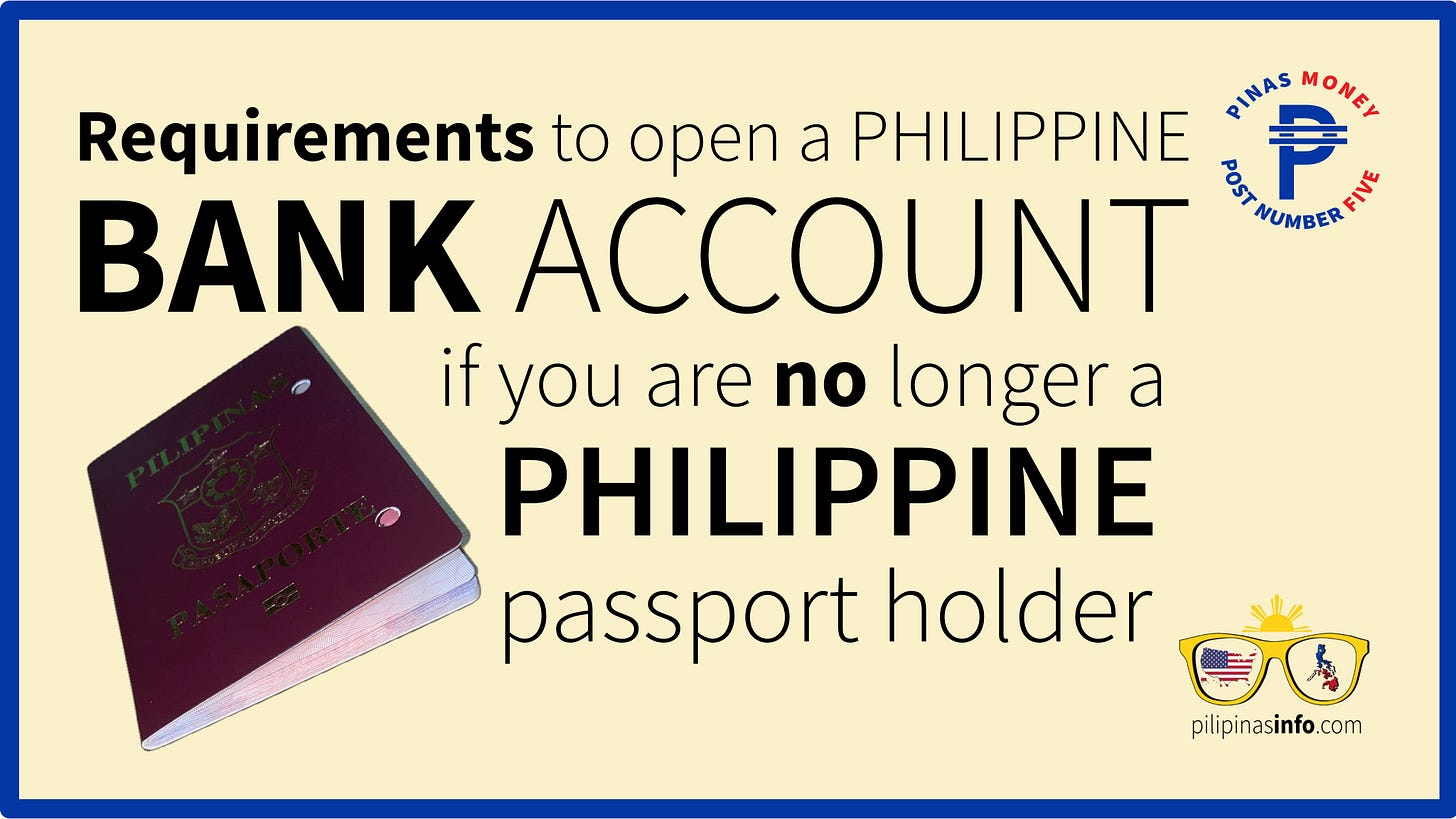Requirements to open a Peso Bank Account if you NO longer hold a Philippine Passport
Lessons learned when a FORMER Filipino Citizen needed a Peso Account (Pesos Series #5)
I didn’t know why the Philippine bank is asking for my US Social Security Number (SSN). I know that I should guard my SSN or my credit score and other essential records may be ruined. Why do I need to complete an IRS form that asks all my relevant information to open a peso account? In this post, I will share why and what are the requirements some major Filipino banks ask for if you are no longer holding a Philippine passport.
Foreign Account Tax Compliance Act
There is a law called Foreign Account Tax Compliance Act (FATCA). Its main purpose is to “foreign entities report on the foreign assets held by their U.S. account holders.” In other words, Philippine banks are required to send financial information of any US citizen to the Internal Revenue Service. “To put it bluntly, they don't like U.S. citizens having offshore or overseas accounts—mostly out of fear of being unable to take revenue from such accounts—and so they discourage the practice” - wrote Sean Ross for Investopedia. But don’t panic. You are required to report it in your income tax only when you have the equivalent of $10,000 at any time of the tax year. As of this writing, that is equivalent to 563,208.30 pesos. Ross added that FACTA “requires foreign banks to report account numbers, balances, names, addresses, and identification numbers of account holders to the IRS.” That is the reason why Philippine banks require you give them your SSN. Plus, having you as a banking client means they will do additional paperwork. No wonder they asked me a lot of questions like why I needed to open one.
Needed to prove why I need a peso account
Before they asked me for my ID’s or passport, they closely questioned why I needed to open a peso account. I told them I am the sole inheritor of financial benefits of my relatives who passed away. They did not just take my words. They asked for death certificates and other paperwork. One bank even told me I will be required to attach papers proving where I got the money every time I deposit a check. It was only when they find my reason satisfactory that they allowed me to apply for a peso account and asked for my personal identification documents.
Identification Cards Accepted by Major Philippine Banks
Most banks accept foreign passports as a valid Identification Card or ID. However, you need to present two ID’s. Most foreigners can get an Alien Certificate of Registration (ACR) or Immigrant Certificate of Registration. You can only get an ACR if you stayed in the Philippines for 59 days or more. Here is a list of requirements if you want to get one. Below are the links to the requirements of three major Philippine banks:
What if you only plan to stay in the Philippines for less than 59 days? What are your other ID options? Here are some ideas for Former Filipinos who haven’t applied for dual citizenship:
Do you have a current Professional Regulation Commission ID?
Do you have a Tax Identification Number (TIN) before? Go to a Bureau of Internal Revenue branch and get a TIN ID. If you are filing for Estate Tax Amnesty, it is likely you need your TIN for your paperwork so get a TIN ID and find a bank that accepts it.
Were you a GSIS or SSS member? Ask them if they will give you an ID.
Find out if you can get other ID’s accepted by the bank like Barangay Certification and see if you can get one.
Next week, I will tell you all about the specificity required by Philippine Banks when you are using a Special Power of Attorney (SPA) and other paperwork details.



